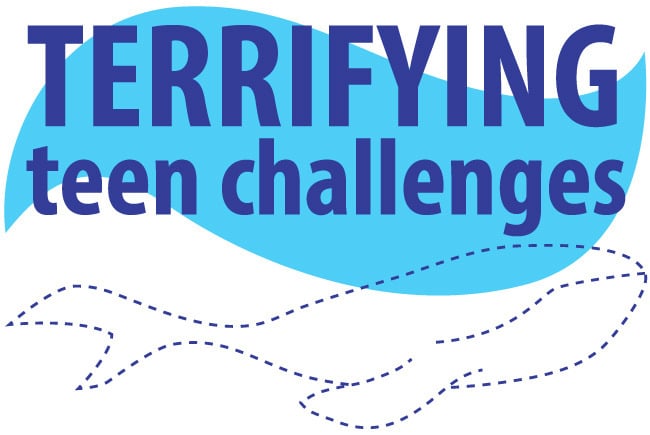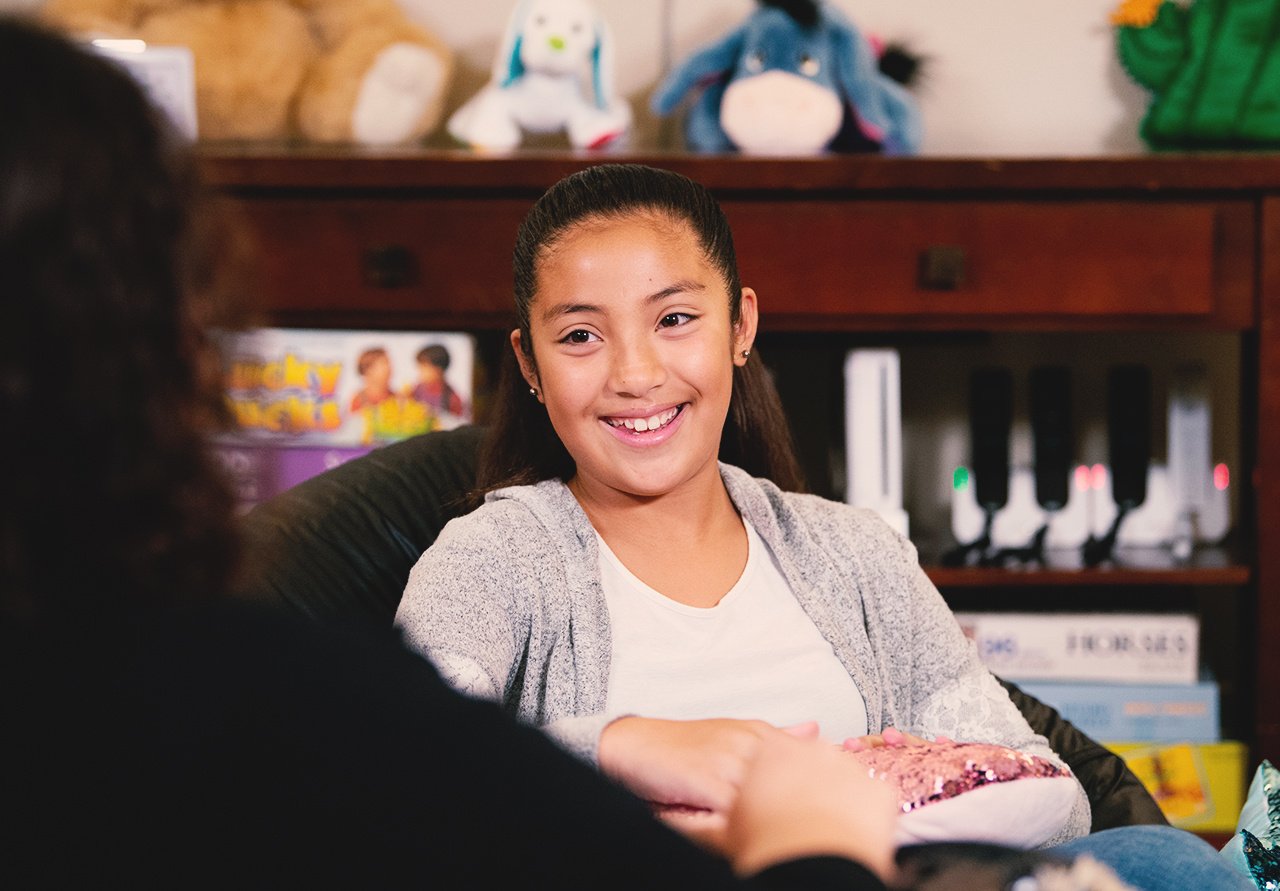
Children have been accidentally ingesting laundry detergent and other household cleaners for as long as they have been manufactured. A new teen social media challenge has shifted focus from accidental to intentional exposure. The “Tide Pod Challenge” has gone viral. Teens and even some adults are posting videos of themselves putting laundry detergent pods in their mouth, biting, and chewing the packets until they burst.
(click to enlarge graphic)

Share this Image on Your Site
At the age of 16, teens are given the opportunity to obtain their driver’s license in the United States. Some of the same kids we entrust to obey traffic rules and drive responsibly are eating laundry detergent packets in a social media challenge. The hunger for social acceptance and temptation for virality must be overwhelming.
However, eating a laundry detergent pod or packet isn’t really possible. If you’d actually try to pierce the plastic packet with your teeth, detergent will burst through the air-tight seal sending laundry detergent down your throat. From there, you’d start to gag and cough. You may even ingest a cleaning agent like Linear Alkylbenzene Sulfonates or Polyethyleneimine Ethoxylate, a chemical that’s designed to lift dirt from your clothes. Even just a small amount of detergent can result in esophageal and lung burns.
Why do kids participate in the Tide Pod Challenge?
Self-harm is an intentional act of physically hurting one’s body without a direct suicide attempt. Some use self-harm as a coping mechanism to relieve extreme stress, emotional numbness, trauma, or abuse. The most common form of self-harm is cutting. Other forms of self-harm include burning, scratching, poison ingesting, wound picking, and hair pulling.
Related: Cyberbullying and teen suicide
Is the Tide Pod Challenge a form of self-harm? While the absurdity of the social media challenge may make it seem silly, choosing to bite through a detergent pod should be cause for major concern. Participation in these types of challenges could also be seen as a way teens attempt to cope with worsening depression.
The more time teens and adults spend on social media, the more likely they are to become depressed, according to a recent study done by the University of Pittsburgh School of Medicine.
“It may be that people who already are depressed are turning to social media to fill a void.”
The lead author of the study at the University of Pittsburgh concluded that individuals who are depressed often turn to social media to escape, further fueling their depression. Spending more time on social media also contributes to internet addiction, idealized representations of reality, and exposure to cyberbullying.
The long list of teen social media challenges:
Tide Pod Challenge
Blue Whale Challenge
How many people have died from the Tide Pod Challenge?
In 2016 and 2017 there were 53 cases of intentional exposure to laundry detergent pods. Since January 1, 2018, this number has increased to 119 teenagers. The American Association of Poison Control Centers claims there were 10,570 cases of detergent exposure reported to poison centers for children 5 years of age and younger in 2017.
However, there aren’t clear numbers regarding the number of deaths that can be contributed to the Tide Pod Challenge.
The incredible media exposure has only exacerbated the problem accelerating intentional exposure. Eventually, the media exposure might help qualm future ingestion by creating awareness, helping parents move the detergent pods out of reach of younger children.
There has always a real and present danger of toddlers shoving small objects in their mouth. Unlike teens, toddlers can actually be protected from ingesting detergent pods. Some feel that the brightly colored candy appearance of laundry detergent pods is more attractive to toddlers or children with cognitive disabilities.
The more parents realize that the brightly colored detergent pods need to be out of reach, the better.
What is the Blue Whale Challenge?
The Blue Whale Challenge or Blue Whale Game is a social networking game that rose to prominence in 2016. The game has reached a number of countries across the globe. It originated in Russia and quickly spread through social media to America, Europe, India, Morocco, Algeria, and other developed countries. It features a series of self-harm tasks assigned to players by an administrator during a 50-day period. On the last day of the challenge, the participant is asked to commit suicide.
Named after whales that beach themselves and die in the process, the Blue Whale Challenge has been around for longer than the Tide Pod Challenge, and its goals are more sinister.
Once kids are pressured to join through social media, they’re blackmailed and cyberbullied to stay in the game by their administrator.
The digital world is an overwhelming arena. For many kids, it’s their only outlet for social interaction. What can a parent do to help their child becoming involved with a potentially deadly social media challenge?
Rob Gronkowski Tide Pod PSA
Tide Super Bowl Commercial 2018
Stopping the Tide Pod Challenge
Teenagers are incredibly curious, and the internet is the perfect place to explore the digital world without draconian restrictions. However, curiosity can sometimes be leveraged by nefarious actors.
Unfortunately, the temptation of social media use will only increase. Kids who engage a lot on social media may feel like they are not living up to unrealistic portraits of life that they find elsewhere online.
Though social media is now considered an essential avenue for interaction, your child or teen’s accounts and postings should be monitored. It’s also important to remember that not every child or teenager that uses social media is depressed or will become depressed. The more active we all are online the less time we’re cultivating meaningful relationships in reality. If you feel that your child may be exhibiting signs of depression, get involved and start listening without judgment.
Read More: Our licensed therapists offer expertise in anxiety
We encourage parents to use online resources like the Anxiety and Depression Association of America to find more information and specific steps to take if they feel like their child might be suffering from intense anxiety or depression.
In the meantime, parents can keep laundry detergent pods out of reach of toddlers to help prevent possible ingestion. Parents of teenagers and young children can also avoid purchasing detergent pods altogether and use traditional liquid detergent when possible.
The Pink Whale Challenge
Ana Paula Hoppe and Rafael Tiltscher are credited with starting the Pink Whale Challenge. According to BuzzFeed, the Pink Whale challenge is structured similarly to the Blue Whale challenge. It asks players to compete in a series of daily challenges designed to promote positive ideas, like doing homework or pitching in to help around the house.
“People started to send messages asking for help, children who were hurting themselves and even the people who were thinking about taking their lives.”
Once they launched a Facebook page, they were bombarded with messages from teens who wanted to start the challenge.
The National Suicide Prevention Lifeline provides 24/7, free and confidential support for anyone in distress, prevention and crisis resources for you or your loved ones, and best practices for professionals.
The number of the National Poison Help hotline is 1-800-222-1222. You can also text “Poison” to 797979 to save the number in your phone. It’s available 24/7 for free.










